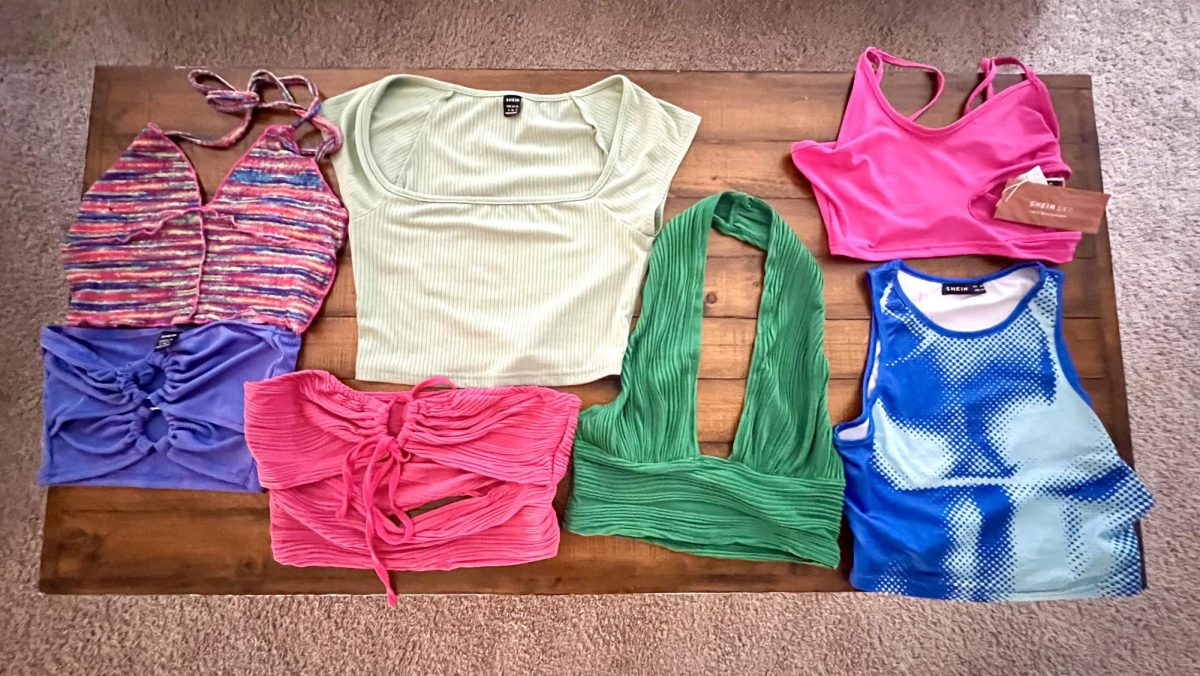Last week, I was scrolling through social media and came across two types of fast fashion content: people dumping out hundreds of SHEIN bags for their ever-evolving “fall fashion” and photographs of fabric-packed landfills.
And yet, I never thought to myself, “We should blame the people who buy necessities and a few extra fun garments at H&M because they can’t afford anything else.”
Fast fashion is destroying our planet, exploiting workers and contributing to carbon emissions.
That’s all true and there’s data to back it up. But it’s not people’s fault that they don’t have the funds to buy overpriced, ethically made bras that cost the equivalent of this month’s rent.
The people who redo their entire wardrobe with $100 on fast fashion websites and companies that abuse the import-export system are actually the problem.
Let’s get real. The economy still sucks for a lot of people right now, if we exclude the handful of billionaires who get to stay on their yachts and pretend that life is perfect.
Don’t worry. The good news is that some of those billionaires are the same ones selling $5 tops produced by child labor sweatshops in Bangladesh, even though they have the funds to sell reasonably priced clothes with an added bonus of following laws.
So why are social media influencers raging at average consumers about the dangers of fast fashion instead of being upset with the companies themselves? Do they finally understand that they’ve contributed to the problem with their endorsed posts, or is it simply “trendy” to care about this now?
Because let me tell you, fashion brands have been under scrutiny for years.
Abercrombie & Fitch was called out by a 2018 report titled “Labour Without Liberty” that described working conditions akin to modern-day slavery in their factories. Multiple major retailers were boycotted back in the 1990s for its sweatshops, such as Nike and GAP.
It’s absurd to act like we haven’t bought clothes from harmful companies, even before they were labeled “fast fashion.”
“Made in the USA” clothing tags aren’t always green flags, either, which is a common misconception. Fashion Nova, one of the only fast fashion retailers that doesn’t internationally outsource its textile production, was exposed in 2019 for underpaying “off the books” workers in its Los Angeles factories.
Erick Gabrielyan, a fourth-year business management student, serves as the public relations coordinator for San Diego State University’s Fashion Club. He said that he feels like certain aspects of fast fashion are left out of conversations, including accessibility and a lack of ethical options.
“There really isn’t much escape from fast fashion,” Gabrielyan said. “Your only alternatives to fast fashion are either spending a ton of money buying handmade clothes made in America and places guaranteed that it’s ethical, and the other option is thrifting. I feel like people think just SHEIN and Zara are fast fashion when it’s kind of everything if you think about it.”
Perhaps that’s the real issue. Many students, including myself, don’t know where they’re supposed to shop for clothes, especially when advertised ethical brands sell basic T-shirts for $95.
Now, don’t get me wrong. Fast fashion companies are a problem, and it’s only gotten worse with overconsumption to keep up with fashion trends.
However, a small pocket of society seems to believe that it’s up to us to fix this decades-long problem when, in fact, it’s all about corporate greed.
Gabrielyan said that he thinks people feel this way because they have more control over what they buy than anything else.
“To some degree, the power of the consumer is there, and it is a real thing,” Gabrielyan said. “But at the same time, I don’t think it’s really doing much, because if every single person stopped shopping fast fashion, a lot of the problems that people think fast fashion contributes to wouldn’t go away.”
So next time someone privileged enough to avoid fast fashion shoves statistics down your throat, remember that the companies feeding the cyclical system are the ones that need to be held accountable.
Stop treating people who buy fast fashion like the enemy toward humanity, and instead, focus on the multi-billion dollar entities watching us fight among ourselves while they rake in outrageous profits.









